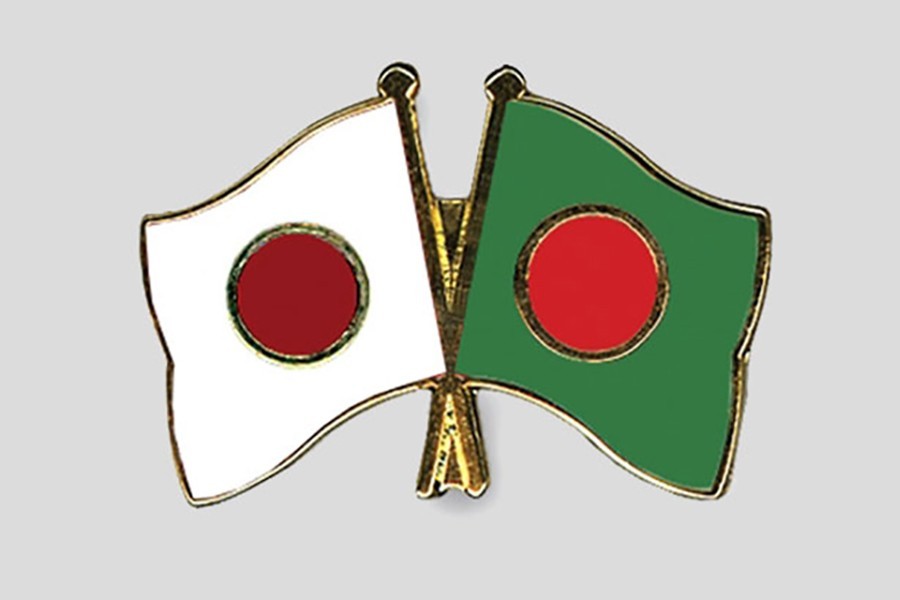Experts suggest that Bangladesh start a joint study in partnership with Japan to reap benefits of the friendly relations through properly identifying untapped economic opportunities.
On half-century of the ties, they cite the East Asian economic powerhouse Japan as one of the most trusted and reliable friends of Bangladesh.
To take this relationship to the next level, they seek an initiative to sign an FTA (free-trade agreement) as Bangladesh as an LDC will lose preferential market access to Japan.
They also exhort local policymakers to continue reforms in improving business climate, particularly in areas like customs clearance, taxes, and discrimination of export incentives between local and overseas investors.
The suggestions and observations came at a dialogue styled 'Bangladesh-Japan Partnership for the Next Development Journey' hosted by the leading local think tank Centre for Policy Dialogue (CPD) on Wednesday.
Presiding over the programme, CPD chairman Prof Rehman Sobhan says Japan focuses its attention on the Asian region as far as trading is concerned.
"We need very much to plug into the network established by Japan with its Asian partners," he advocates.
To tap opportunities, Mr Sobhan recommends Dhaka-Tokyo joint studies of how both nations benefit mutually.
Japanese ambassador to Bangladesh Ito Naoki says the number of Japanese investment here has increased over the years.
Citing the latest Jetro survey, he says 68 per cent of Japanese companies are ready to expand their operations in Bangladesh in the next two years.
To court more Japanese investors here, Mr Naoki expects further progress in the ease of doing business.
Speaking as the chief guest, planning minister MA Mannan says Bangladesh has never faced any disagreement with Japan over the past 50 years.
"It shows how friendly and reliable relationship it is. As a result, Japan's friendly footprint will be found in every corner of the country."
Mr Mannan says his government has initiated FTA talks with Japan, expecting a fruitful deal and anticipating stronger and warmer ties in the coming years.
Lawmaker Kazi Nabil Ahmed, a member of parliamentary standing committee on foreign ministry, says Bangladesh can benefit from Japan in areas like artificial intelligence and cutting-edge technology transfer.
Kathy Matsui, a board member of Asian University for Women, says Japan does not have plenty of natural resources while it is running out of young people.
"It does have the technology, industrial capacity and transfer technology. So, a deeper partnership can help Bangladesh flourish further," she remarks.
At the event, Japan-Bangladesh Chamber of Commerce and Industry (JBCCI) president Asif A Chowdhury highlights many problems that need to be addressed.
In a PowerPoint presentation, CPD research fellow Syed Yusuf Saadat says Bangladesh can lure more Japanese investors if it eases business climate with reducing time and cost of doing business in major cities.


